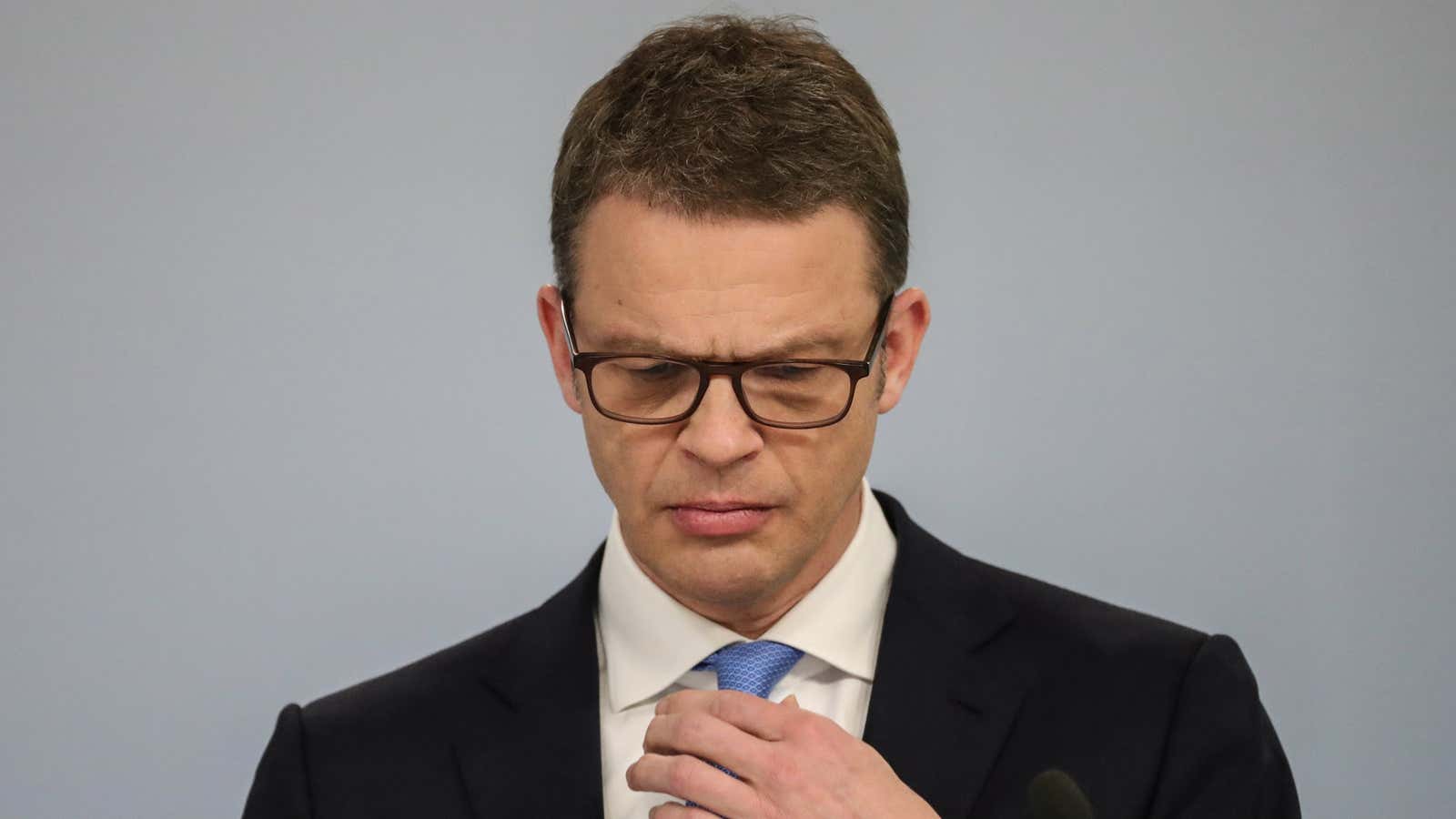Deutsche Bank, whose articles of incorporation were approved by the King of Prussia nearly 150 years ago, was once among the financial world’s highest flyers. But it has been unable to find its footing since the 2008 financial crisis and is now scaling back some ambitions, with plans to reduce its investment banking footprint (paywall). For investors, Germany’s biggest bank by assets is now about as valuable as a medium-sized regional US lender.
These days, Deutsche Bank’s market capitalization falls somewhere between Chicago-based Northern Trust and Fifth Third, which has its headquarters in Cincinnati. To be fair, Northern Trust isn’t quite a lightweight (it handles trillions of dollars in its custody division), but these are not names you normally see in the same sentence. Deutsche Bank, with about 97,000 employees, has a staff that’s five times larger than Northern Trust’s, and assets that are more than 12 times bigger.
Deutsche Bank’s long-running turnaround efforts have been marred by a series of negative headlines lately. Standard & Poor’s (pdf) cut its credit rating to BBB+ on June 1, citing the difficulties of successfully restructuring its sprawling business. The US Federal Reserve reportedly designated (paywall) Deutsche Bank’s US division as being in “troubled condition.” Like many banks, the lender has also been beset by litigation and fines.
Credit default swaps, a type of derivative used to hedge or speculate on default risks, signal that bond traders are losing confidence in the German banking stalwart. Five-year swaps rose to 188 basis points on May 31, according to IHS Markit data, compared with 99 basis points a year earlier.
The bad news appears to be overshadowing the good: The bank has improved its capital ratios and is putting regulatory penalties behind it. As CEO Christian Sewing (pictured above) said in an open letter to employees on June 1, S&P downgraded the bank because of profitability concerns—not because of balance sheet worries. While US regulators are unsettled about Deutsche Bank’s internal controls and infrastructure, Sewing argued that the bank’s core capital ratio and balance sheet figures demonstrate financial soundness.
“Yes, our share price is at a historic low,” Sewing said in the letter. “But we’ll prove that we have earned a better valuation on the financial markets.”
Sewing, who took over the bank’s top job in early April, indicated shortly thereafter that Deutsche Bank was focused on its European and multinational clients with activities linked to the region, and would cut back elsewhere. While this was taken as a sign that the new boss had given up trying to compete with top-tier banking giants (paywall) like JPMorgan and Morgan Stanley, Sewing has insisted that the Frankfurt-based bank still has global aspirations. Stock investors, meanwhile, appear to have come to the conclusion that Deutsche Bank should no longer be considered among the top tier, and have written down the value of the bank’s assets accordingly.
